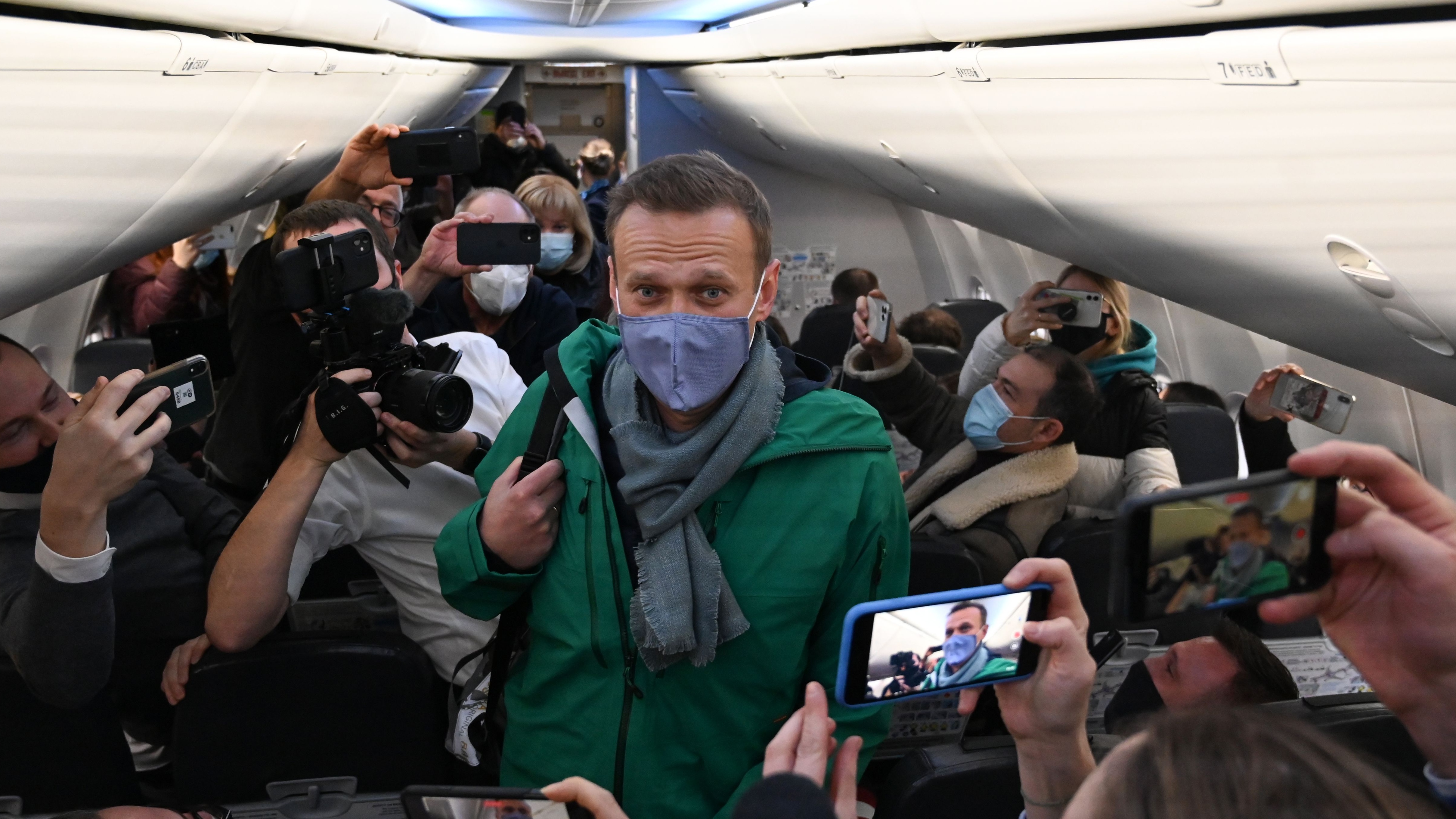Amnesty criticised after stripping Alexei Navalny’s ‘prisoner of conscience’ status
Spokesperson for jailed opposition leader claims human rights group was ‘fed crap’ by Russian sources

A free daily email with the biggest news stories of the day – and the best features from TheWeek.com
You are now subscribed
Your newsletter sign-up was successful
Amnesty International has come in for criticism after stripping Alexei Navalny of his status as a “prisoner of conscience”.
The human rights group, which recognised the Russian opposition leader as a prisoner of conscience after his arrest last month, said it had reversed its decision “in light of new information” about comments Navalny has made in the past about migrants from Central Asia.
Amnesty said it had been “bombarded” with complaints about Navalny’s views and “couldn’t ignore them”, but a spokesperson for the organisation in Moscow told the BBC that he believes the complaints were part of an “orchestrated campaign” to discredit Vladimir Putin’s most prominent critic.
The Week
Escape your echo chamber. Get the facts behind the news, plus analysis from multiple perspectives.

Sign up for The Week's Free Newsletters
From our morning news briefing to a weekly Good News Newsletter, get the best of The Week delivered directly to your inbox.
From our morning news briefing to a weekly Good News Newsletter, get the best of The Week delivered directly to your inbox.
An anonymous Amnesty employee also told Russian news site Mediazona that the campaign may have been led by “people in different countries at Russia Today (RT)”, the Kremlin-funded news organisation. They added that at least two complaints cited a Twitter thread by RT columnist Katya Kazbek in which she called Navalny an “avowed nationalist and racist”.
In 2006, Navalny co-founded Narod, “a nationalist-democratic movement”, and also attended the Russian march, an annual rally in Moscow of “nationalist and ultra-right groups”, The Times reports.
In a series of online videos entitled “Become a Nationalist”, he also compared people from the North Caucasus, which is home to many Muslims, to “cockroaches” and said that homeowners should be able to use lethal force to defend their homes.
Navalny’s “nationalist streak” has “made it difficult for the Kremlin to portray him as a puppet of the West”, Politico says. However, Amnesty said that some of Navalny’s remarks “reach the threshold of hate speech, which contradicts Amnesty’s definition of a prisoner of conscience”, The Moscow Times adds.
A free daily email with the biggest news stories of the day – and the best features from TheWeek.com
Leonid Volkov, chief of staff for Navalny’s campaign during the 2018 presidential election, tweeted that Amnesty had been “fed crap” by the Russian state and “liked it”. Kira Yarmysh, a spokeswoman for Navalny, added in a tweet that the decision was made at the request of “state propagandists”, describing the move as “a total disgrace”.
This is not the first time Amnesty has withdrawn prisoner of conscience status from a well-known political figure. In 1964, it disqualified Nelson Mandela after he defended the African National Congress’s use of organised political violence.
Chas Newkey-Burden has been part of The Week Digital team for more than a decade and a journalist for 25 years, starting out on the irreverent football weekly 90 Minutes, before moving to lifestyle magazines Loaded and Attitude. He was a columnist for The Big Issue and landed a world exclusive with David Beckham that became the weekly magazine’s bestselling issue. He now writes regularly for The Guardian, The Telegraph, The Independent, Metro, FourFourTwo and the i new site. He is also the author of a number of non-fiction books.
-
 6 of the world’s most accessible destinations
6 of the world’s most accessible destinationsThe Week Recommends Experience all of Berlin, Singapore and Sydney
-
 How the FCC’s ‘equal time’ rule works
How the FCC’s ‘equal time’ rule worksIn the Spotlight The law is at the heart of the Colbert-CBS conflict
-
 What is the endgame in the DHS shutdown?
What is the endgame in the DHS shutdown?Today’s Big Question Democrats want to rein in ICE’s immigration crackdown
-
 Alexei Navalny and Russia’s history of poisonings
Alexei Navalny and Russia’s history of poisoningsThe Explainer ‘Precise’ and ‘deniable’, the Kremlin’s use of poison to silence critics has become a ’geopolitical signature flourish’
-
 Epstein files topple law CEO, roil UK government
Epstein files topple law CEO, roil UK governmentSpeed Read Peter Mandelson, Britain’s former ambassador to the US, is caught up in the scandal
-
 Iran and US prepare to meet after skirmishes
Iran and US prepare to meet after skirmishesSpeed Read The incident comes amid heightened tensions in the Middle East
-
 Israel retrieves final hostage’s body from Gaza
Israel retrieves final hostage’s body from GazaSpeed Read The 24-year-old police officer was killed during the initial Hamas attack
-
 China’s Xi targets top general in growing purge
China’s Xi targets top general in growing purgeSpeed Read Zhang Youxia is being investigated over ‘grave violations’ of the law
-
 Panama and Canada are negotiating over a crucial copper mine
Panama and Canada are negotiating over a crucial copper mineIn the Spotlight Panama is set to make a final decision on the mine this summer
-
 Why Greenland’s natural resources are nearly impossible to mine
Why Greenland’s natural resources are nearly impossible to mineThe Explainer The country’s natural landscape makes the task extremely difficult
-
 Iran cuts internet as protests escalate
Iran cuts internet as protests escalateSpeed Reada Government buildings across the country have been set on fire